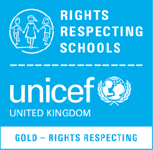- Home
- News & Dates
- News
- Holocaust Memorial Day 2022 Assembly
Holocaust Memorial Day 2022 Assembly

Holocaust Memorial Day 2022 Assembly
Source – Holocaust Memorial Day Trust
This week’s assembly was taken by Mr Cassidy (Assistant Head and History Teacher) who gave a powerful presentation on Holocaust Memorial Day.
The Holocaust
This Thursday (27 January) is Holocaust Memorial Day. Holocaust Memorial Day is the day each year when we remember the six million Jewish people who were systematically persecuted and murdered by the Nazis and their collaborators during the Holocaust.
Why 27 January?
27 January is the day Auschwitz-Birkenau, the largest Nazi death camp was liberated. Over 1.1 million women, men and children lost their lives there.
Susan Pollack
Susan grew up in Hungary and experienced antisemitism from a young age. In 1944 Susan was sent to Auschwitz-Birkenau, where she was separated from her family. After the war, she found out that more than 50 of her relatives had been killed and that only she and her brother had survived.
Nazi Persecution
On Holocaust Memorial Day, we also remember other groups of people who were persecuted and murdered by the Nazis. These include Roma and Sinti people, disabled people, gay people, Jehovah’s Witnesses, political opponents and many others.
Rudolf Brazda
Rudolf Brazda was the last known concentration camp survivor deported specifically for homosexuality. He was sent to prison twice, and then deported to Buchenwald concentration camp in 1942 where he was subject to forced labour for 32 months.
Genocides around the world
After the Holocaust, the world said ‘Never Again’. But humanity has failed to learn lessons from the
Holocaust, and genocides continue to happen around the world, to this day. On Holocaust Memorial Day we remember the millions of women, men and children, who have been murdered in the genocides which followed – in Cambodia, Rwanda, Bosnia and Darfur.
What is genocide?
Genocide is when a group of people is targeted for destruction just because of who they are, such as their race or their religion.
The ten stages of genocide
Genocide does not happen out of the blue – it is the result of prejudice and persecution which sees a group treated differently from the rest of society. On Holocaust Memorial Day, we are reminded of what can happen when prejudice and persecution are left unchallenged, and of our responsibilities to stand against these processes when we see them in our own communities. This image shows ‘the 10 stages of genocide’ and helps us to know what warning signs to look out for. The stages may occur simultaneously or in a different order.
Why is this important to us?
People are still discriminated against today because of their religion, their race, their sexuality, or another element of their identity. Whilst we are not at immediate risk of genocide here in the UK, hate speech and prejudice are frequently seen online, and the number of hate crimes recorded each year has been increasing. Outside of the UK, at this very moment, genocide is taking place in the region of Darfur, which is part of the country of Sudan in Africa.
What can we do?
Mr Cassidy shared ideas of things that individuals, groups and schools have done in the past to mark Holocaust Memorial Day, and remember the people murdered. By holding this assembly, we are already doing something to mark the day, learn about genocide and remember all those affected. This is an opportunity for you to reflect on the lives of people affected by genocide, and to challenge prejudice, discrimination and hatred in our own society today. Let’s find out about where genocide is taking place, learn about those affected by it and tell others what we learn.
Your voice is amazing.



